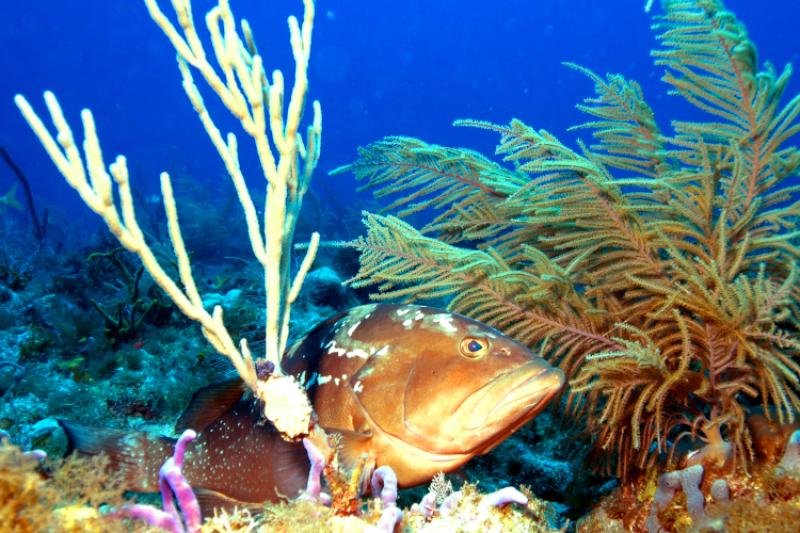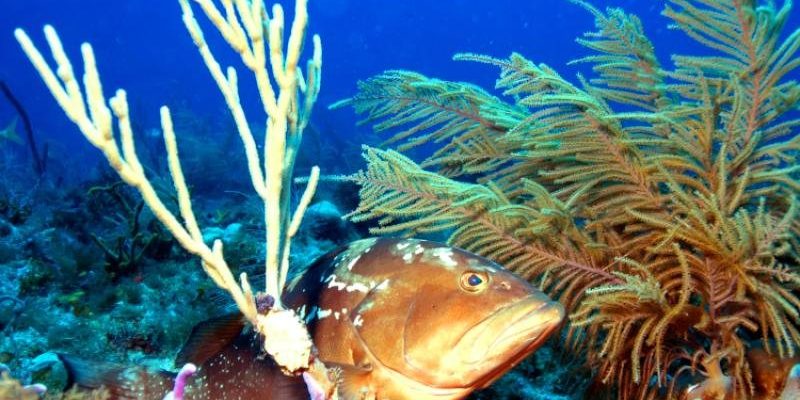
So, what’s the deal with climate change and the grouper? Let me explain. Climate change isn’t just a buzzword thrown around at social gatherings. It’s a pressing issue that alters habitats, impacts food sources, and disrupts the delicate balance of life in our oceans. As these changes unfold, the survival of grouper species hangs in the balance. In this article, we’ll dive deep into how climate change is impacting these fascinating fish and what it could mean for the future of marine life.
What Makes Grouper Special
Before we get into the nitty-gritty of climate change’s impacts, let’s take a moment to appreciate what makes grouper fish so unique. There are over 150 species of grouper, and they’re known for their stout bodies and large mouths. Grouper are often a popular catch for both commercial and recreational fishing. They’re not just tasty; they also play a vital role in their ecosystem as predators.
These fish are generally found in warm tropical waters, particularly around coral reefs. Think of them as the guardians of the reef—keeping populations of smaller fish in check while also serving as a food source for larger predators. Their importance can’t be overstated. Essentially, grouper are a linchpin in the marine food web, and any threats to their population ripple through the ecosystem.
Rising Ocean Temperatures
Here’s the thing: as global temperatures rise, so do ocean temperatures. This phenomenon can have drastic effects on marine life. For grouper, warmer waters can lead to a range of challenges. Most species have specific temperature ranges they thrive in. When these ranges shift, their habitats can become inhospitable.
Increased temperatures can also lead to stress in grouper, affecting their growth and reproduction. Think of it like trying to run a marathon on a sweltering summer day—it’s tough and exhausting. Stress can weaken their immune systems, making them more susceptible to diseases and parasites. In essence, a warmer ocean isn’t just uncomfortable for these fish; it can lead to mortality rates rising.
Coral Reef Health
Coral reefs, where grouper often reside, are incredibly sensitive to temperature changes. When ocean temperatures rise, corals can experience bleaching, where they expel the symbiotic algae that give them color and nutrients. A bleached reef is like a barren desert; it loses its ability to support marine life.
When grouper lose their coral reef homes, they’re not just losing shelter; they’re losing access to food. Coral reefs are rich ecosystems, fostering a diverse range of species. Without healthy reefs, grouper populations can dwindle. It’s a heartbreaking chain reaction.
Ocean Acidification
You might be wondering how carbon dioxide emissions relate to fish. Well, higher levels of CO2 in the atmosphere lead to increased absorption of this gas by oceans, causing ocean acidification. This process makes the water more acidic, which can adversely affect marine life, particularly organisms with calcium carbonate structures, like corals and certain shellfish.
Grouper and other fish may not have shells, but they are part of an ecosystem that does. As the base of the food chain suffers, so too do the grouper that rely on these smaller creatures for their diet. It’s a domino effect, where one issue often leads to another.
Declining Fish Populations
Overfishing has been a global concern for decades, but coupled with climate change, the survival of grouper is facing increasing challenges. As the environment shifts, fish populations can decline due to the added pressures of habitat loss and changing food availability. Fishing practices that don’t allow populations to recover are holding grouper populations back from thriving.
For instance, some grouper species are already on the brink of overfishing. Their slow growth rates and late maturity mean that they struggle to rebound quickly from population declines. Combine this with climate change, and you have a recipe for potential disaster. Protecting grouper means understanding how to fish sustainably, giving these fish a fighting chance.
Management and Conservation Efforts
To counteract the effects of climate change, various conservation efforts are underway. Some regions have implemented marine protected areas, allowing fish populations to recover without the pressure of human activity. Others are focusing on sustainable fishing practices, which can help maintain grouper populations while also supporting local fishing communities.
It’s a balancing act: keeping the fish stocks healthy while also providing for the people who rely on them. Involving local communities in conservation efforts can lead to better outcomes. After all, if everyone understands the importance of grouper and their habitat, we’re more likely to take action to protect them.
The Future of Grouper and Our Oceans
Looking ahead, the fate of grouper depends on how effectively we combat climate change and manage marine resources. It’s not all doom and gloom, though—there are plenty of initiatives working toward better understanding and safeguarding marine ecosystems.
Raising awareness about the importance of grouper and their habitats can drive change at both individual and community levels. Simple actions, like reducing plastic use, supporting sustainable seafood, and advocating for policy changes, can contribute to healthier oceans. Remember, every small step counts when it comes to protecting our planet.
Community Involvement
You might think, “What can I do?” It might not feel like much, but getting involved in local conservation groups or supporting sustainable seafood initiatives can make a difference. Educating others about the importance of marine life—especially in your community—can create a ripple effect of awareness and action.
Conservation isn’t just for scientists; it’s for everyone. Together, we can protect the grouper and the oceans they call home.
In Conclusion
As we’ve explored, climate change is posing significant challenges for grouper fish and their environments. From rising temperatures and ocean acidification to declining food sources and overfishing—every aspect of their life is intertwined with the health of our oceans.
The good news is that awareness and action can lead to positive change. By understanding the challenges facing grouper, we can help mitigate the effects of climate change. Let’s take what we’ve learned and commit to protecting these iconic fish and their habitats for generations to come. After all, a healthy ocean benefits not just grouper, but all of us.

